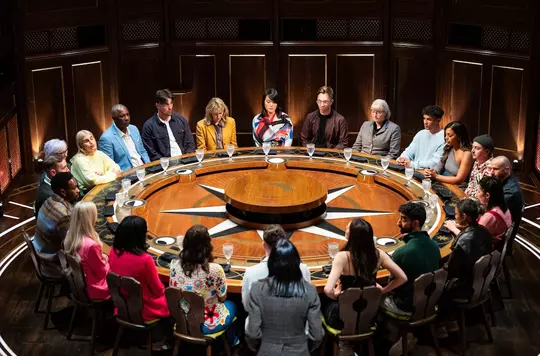22 February 2025
'We're always meant to be inviting people in'
Rachel Jordan-Wolf

Rachel Jordan-Wolf talks to Salvationist about why fullness of life with Jesus means living as God’s household.
More than half (53 per cent) of non-Christians in the UK know someone who is a practising Christian. That was one of the key findings of the Talking Jesus research conducted by the evangelistic charity Hope Together in a six-way partnership with Alpha, the Evangelical Alliance, CV Global, Kingsgate Community Church and the Luis Palau Association.
The report surveyed people outside the Church and found that the greatest reach of the Church is through everyday relationships. Rachel Jordan-Wolf, the director of Hope Together, wrote up the report and is one of the speakers at the Mission Conference this weekend reflecting on Ephesians 3:17–21.
From a young age, she’s been passionate about introducing people to her best friend, Jesus. Because relationships are what living as God’s household is all about.
‘The word “household” helps us to understand the context in which Ephesians was written,’ reflects Rachel. ‘The family, the tribe, was the main economic unit.
'Many Christians today read Ephesians and think the word “you” means “me”, but it means “us”. We are called to live in this beautifully reconciled, transformed household of God. The whole purpose of God is to create this enormous family of God’s holy people.’
At the time, the idea of Gentiles being brought into God’s family was revolutionary. Today, the concept of living as God’s household is still radical in a world that encourages us to think of ourselves as solo economic units.
‘This individualistic culture has discipled all of us,’ says Rachel. ‘People want to live on their own, to have control of the TV remote and to control all their interactions with other people – when they happen, how, for how long.
‘When talking to people about faith, we often say “Jesus will make you better”. It’s true, but even then we’re thinking and talking individualistically: the call of the gospel is more than that. It’s a call into community. I think people are hungry for that, because living in isolation isn’t satisfying.’
Living as God’s household is so countercultural that we can’t just articulate it: we have to model it. Ephesians 3:19 tells us that ‘the love of Christ … is too great to understand fully’ (New Living Translation). It’s much bigger than any one of us.
‘I can’t fully express God to anybody on my own,’ affirms Rachel. ‘You can’t experience fullness of life with Jesus outside the togetherness of God’s holy people. The household of God is the full, unbelievable expression of God.’
Forgetting that, however, leads the Church to become insular: ‘Faith can become all about me and my needs, about experiencing God on my own. But God is never individual: God is the Trinity. God is relational. We are called to bring people into relationship with God and with us.’
Rachel encourages us to live in a way that radically reflects God to others – whether that’s eating one meal every day with someone else, or making sure our life groups have fluid edges, so that we do not keep Jesus and church separate from any relationship. After all, a household where nobody gets along isn’t very welcoming.
‘What are we inviting people into? I don’t think we’ve nailed that in most modern churches,’ observes Rachel. ‘We need to love each other – that means more than hanging out for an hour on Sunday morning.
'Everyone has to constantly forgive and be inconvenienced by each other, or else it doesn’t work. We must elevate others more than ourselves – and if we’re all doing that, nobody should get burnt out.’
By intentionally reaching out to others, building sincere connections, we can keep the door to God’s household open.
‘Our mission isn’t stationary,’ she says. ‘God hasn’t stopped and said, “OK, enough people now.” We’re always meant to be inviting people in.’
-
For more information about Hope Together, visit hopetogether.org.uk.
Discover more

Territorial Whole-Life Discipleship Officer Captain Michael Hutchings calls us to be representatives of Jesus in all parts of our lives.

Ivan Radford considers what we can learn about teamwork from The Traitors.

Lieut-Colonel Jayne Roberts (THQ) unpacks the nurture disciples of Jesus mission priority.
